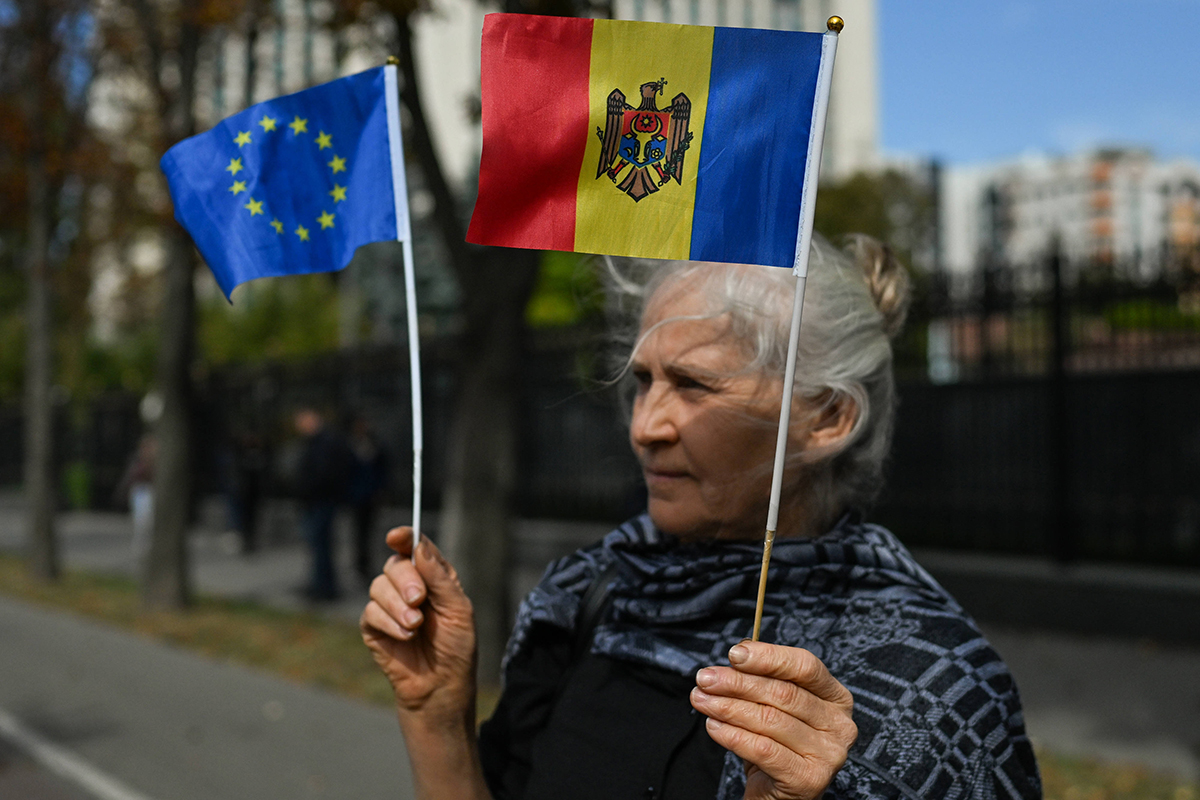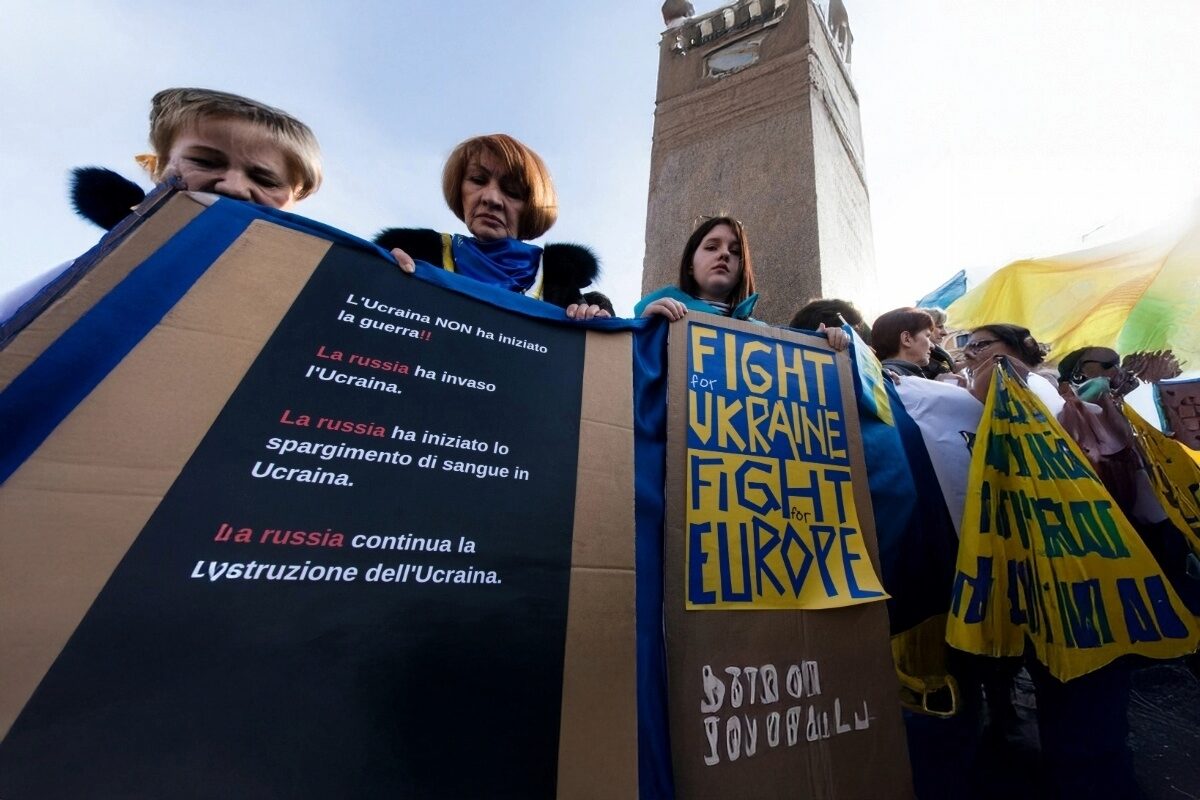”On freedom” – Interview with Timothy Snyder

In the face of multiple crises and a depressing world situation, it is not surprising that many non-fiction books from this fall are deeply pessimistic. Unlike “On Freedom” by US historian Timothy Snyder. Our author Till Schmidt spoke with him about his latest book.
In the face of multiple crises and a depressing world situation, it is not surprising that many non-fiction books from this fall are deeply pessimistic. Unlike “On Freedom” by US historian Timothy Snyder. Our author Till Schmidt spoke with him about his latest book.
The world situation is bleak. In contrast to that, your new book explores a subject associated with hope, trust, and optimism. What made you write “On Freedom, Timothy Snyder?”
There are certainly terrible things going on, but we cannot really address them without concepts. We can’t simply react to one crisis or another. A big part of our problem of the last 35 years has been conceptlessness—the lack of ideas or, worse, the idea that we can get by without ideas. With the word ”freedom” we have the beginnings of a big idea, and I believe of the right idea. I believe that if you define freedom correctly, it opens the way towards a better form of politics, and it opens the imagination towards the future.
“On Freedom” is also a very personal book. What genre is it?
Freedom is not a subject that we can handle ex cathedra or through an abstract solely logical chain of conclusions. Freedom is the value of values, which means that it is the condition in which we can choose other values. But those other values are diverse and sometimes contradictory. If we are free, we are unpredictable. The book is about making mistakes and learning. “On Freedom” mixes memoir, history, and philosophy. It also treats music and literature.
The book is also in some sense an answer to questions that people have been asking me for fifteen years. So, if in “Bloodlands” or in “Black Earth” I showed how things went wrong, shouldn’t I then also be able to say something about good politics? People who read “On Tyranny” quite reasonably asked: If we’re defending something, what is the thing that we’re defending? That intuition is correct because you can’t just stave off problems indefinitely. At some point, you have to be creating.
… which leads us to the main argument in your book: The distinction of negative and positive freedom. Why do you make such a strong case for the latter?
Negative freedom is not freedom. It is at best a wrongheaded tradition of talking about freedom, or a precondition of freedom. In the tradition of negative freedom, we’re concerned with freedom from. But the only reason to be concerned with ‘freedom from’ is because we’re concerned with ‘freedom to’. So, to give you an example: It may be bad to put you in prison, but it’s only bad because you’re a person. So, then the question is: What besides the absence of prison do we need to be free?
The answer is clearly: not nothing.
Absolutely. So, the absence of prison is not enough. The absence of bad government is not enough. The absence of oppression is not enough. Removing the barriers is necessary, but only because we are creatures who are capable of imagining a world that is different to the existing one. One of the problems of negative freedom is that it focuses on the barrier rather than the person. We end up thinking of ourselves as physical objects, just as we think of the barriers as physical objects. We end up with a theory of freedom in which we bounce around following our interests and occasionally run into things. But the point is that without the barriers we cannot grow and change and become.
There are many good things in the world, and what’s special about us humans is our ability to combine them. Freedom is the condition in which we can do that. We are creatures who are capable of believing in values and realizing them in the world. But values don’t follow physical laws. They’re not predictable. Mathematical and logical propositions don’t apply to them in the same way. So, you can’t take an average between loyalty and honesty. You can’t say that loyalty is better than honesty. When you’re loyal and when you’re honest is ultimately going to be a human decision. So, freedom is the condition in which we can affirm the things we believe are in our own ways.
Could you give me examples for when positive freedom has made a striking political impact?
I cannot claim that it was perfectly understood at any moment in the past. But consider John Maynard Keynes. His basic idea was that people became their worst selves when faced with economic instability. Accordingly, they are more free, when the government creates conditions for stability. And consider Franklin D. Roosevelt: The Americans joined the Second World War on the idea that freedom meant the creation of a different kind of society. The entirety of Roosevelt’s rhetoric was about what we would now call positive freedom. The same could be said of many of the resistance movements in Europe during the war.
In the book, you are using European thinkers like Simone Weil and Edith Stein to develop ideas for Americans. What is the political impact of the idea of negative freedom in the US?
It has instructed the Americans that the only barrier to freedom were their own governments. This believe disabled governments to the point that they were unable to provide some of the basic conditions of freedom. At that point Americans start to see each other as a barrier, and politics therefore become a matter of ‘us-and-them.’ The weakened government was also unable to restrain monopolies, especially in media and social media, which has also pushed American politics towards fascism.
The fact that Americans treat freedom as negative has discredited the idea of freedom for Europeans. Therefore, the welfare state is almost never being discussed in terms of freedom. It is solely defined in terms of justice, equality, or common sense. But in fact, the welfare state is best justified as a way to create the conditions in which we can become free people.
In other words: Your understanding of freedom can be seen as a correction of the flaws of predominant concepts of liberalism promoting an idea of freedom without taking into account, among others, solidarity and intersubjective encounters?
You can’t be free without other people. So, the entire liberal tradition in which we begin with an abstract human being can’t work. A useful starting point is birth. The baby should be free, but freedom will depend on capacities the baby cannot generate alone. The people who raise and educate the child also need support. In other words: To become an individual, you need collective action. The word “intersubjective” is very appropriate here because you can’t become a subject without intersubjectivity. You don’t know who you are unless you can listen to other people. And if you are unaware of who you are, then you are definitely not going to be free, because you’re going to be vulnerable to other people who see your weaknesses.
In my reading of your broader work, both overt and more implicit notions of human agency seem to play quite a big role. In “On Tyranny” for instance, you juxtapose the notion of agency to a “politics of eternity” and to a “politics of inevitability.” In what ways is the notion of agency embedded in the notion of freedom as you suggest it in your new book?
It is very important, although I use the word “sovereignty” instead. In the first chapter, I consider the structures necessary to educate sovereign people, in other words people who can be free. The newborn has the potential to become an agent, but only if we value and nurture that potential. We can have a notion of what is good, and we have the power, along with other people, to change the world. Denying that is to start down a different rule, a kind of political thought towards authoritarianism or fascism.
And then from there, the question is: How do we use agency? Not all the things that seem like barriers to us are real barriers. Within the concept of negative freedom, other people eventually become the barrier. But instead, only other people enable us to be free, which means that if we take freedom seriously, we must show solidarity. In the concept of negative freedom, the world is simply a limit. But some limits are tools, if we are agents. Dancing is not possible without gravity. We can also know about the world and other people in the past, which extends our own sense of the possible. The knowledge of history allows us to say: Some things are possible. Not everything, not nothing, but some things.
In contemporary political culture, however, there is no utopia. Positive visions of a better future are scarce. But there is a lot nostalgic longing or ‘retrotopia’, to borrow from a term of Zygmunt Bauman, meaning the belief in a good future to be achieved by turning towards a romanticized past. Why is that the case?
When there is neither an imaginable future nor a historical past, politics becomes a loop back to myth, as with Putin and Trump. Negative freedom eventually extinguishes future. If the problem is always on the outside, if the outside is always the barrier, then I never have to ask: Who am I, where should I be going? Practically, negative freedom favors wealth inequality, which itself stifles the future.
A few people are monopolizing our common future with dumb ideas like that we’re all going to Mars or live forever. Negative freedom also favors global warming, because it presents obvious solutions that would allow billions of people to survive and live in freedom as infringements on the rights of a handful of hydrocarbon oligarchs. Global warming creates the sense that the future is coming to us in a very bad way.
So, in what concrete ways can that notion of positive freedom help us to develop and nourish positive visions for a better and democratic future?
If you see freedom as positive freedom, you’re imagining a future in which all sorts of things are possible, and many of them are good. If we think as free people, then we start to get positive feedback loops where the future seems less pressurized and more open. If we can raise children to be sovereign, to be agents, then they reinforce freedom as adults. If we get social media under control, and allow humans to regain more of their unpredictability, we interact better with one another.
If we can promise social mobility, then people will be enabled better to think of a personal future, and thus a national or a political one. Factuality means, among other things, knowing the little truths of local journalism as well as the big truths of science, meaning that we can solve problems together. Solidarity requires addressing differences in wealth and income, which would have countless positive effects for freedom.
![]()
Hat Ihnen unser Beitrag gefallen? Dann spenden Sie doch einfach und bequem über unser Spendentool. Sie unterstützen damit die publizistische Arbeit von LibMod.
Spenden mit Bankeinzug
Spenden mit PayPal
Wir sind als gemeinnützig anerkannt, entsprechend sind Spenden steuerlich absetzbar. Für eine Spendenbescheinigung (nötig bei einem Betrag über 200 EUR), senden Sie Ihre Adressdaten bitte an finanzen@libmod.de
Verwandte Themen
Newsletter bestellen
Mit dem LibMod-Newsletter erhalten Sie regelmäßig Neuigkeiten zu unseren Themen in Ihr Postfach.





